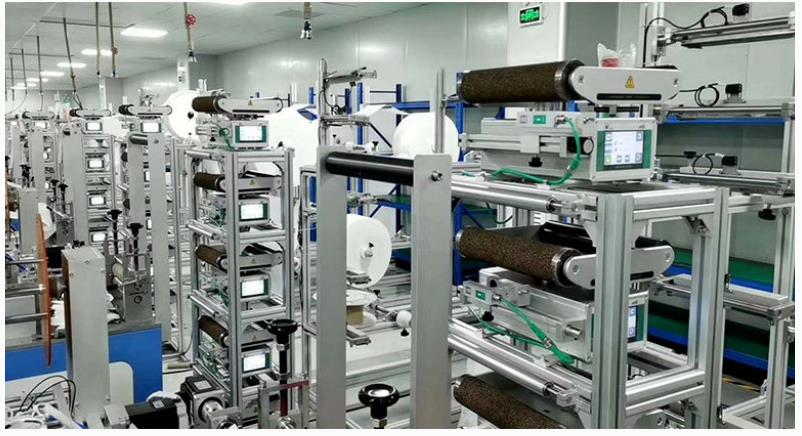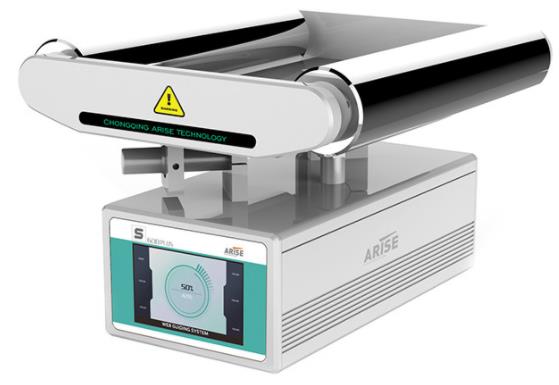Concerning About The Accuracy Of The Web Guide System
As a web guide system manufacturer, the question you will be asked commonly is that what is the accuracy of your web guiding? The answer always will be doubted, because the definition of the accuracy of the web guide system varies for different people. Before learning the accuracy of the web guiding system, there’s a simple question that why the web guide system is required?
Why The Web Guide System Is Required?
The edges or center lines of the process of coating, printing, compounding, dividing, and winding, otherwise, the transverse dislocation of the coil will cause the waste or even downtime. This is why the web guide system is required. It is the technique which will always coil side is neat and consistent. Usually, the tracking method of the web guide includes three types of edge, center and line.

What Is The Accuracy Of The Web Guide System
What determines the accuracy of the web guide system
The accuracy of the web guide is determined by three factors: the deviation of the invasive web, the accuracy of the web guide system, the installation accuracy of the system. Further, the unique features of the coiling are that the deviation of the invasive web, the lateral movement or swing size of the coil, which are important factors in determining the accuracy of the web guide.
The definition of the accuracy of the web guide system
The web guide machine is typically upstream of a critical process, and the closer the process is, thus the maximum reduction in position deviation errors when entering the critical process. As a manufacturer of web guiding, need to follow the edge, center, or line position of the coil just from the probe. So it is recommended that installing the machine in the location closest to the key process.
The Web Offsets Which Affect The Accuracy Of The Web Guide System

Driver limits
The driver has a limit in the web guide system. All web guide systems can correct the position offset within a certain range, and this range should less than the drive limit. Most drivers have a limit of +/-75 mm. If the enter position of the web is shifted by more than 75 mm, the system will be stopped because of the movement to the limit position, and the positional offset for the portion of more than 75 mm cannot be corrected.
Instant position offset
When the lateral position offset occurs in a short period of time, this offset is known as an instant position offset which is usually occurred because the shorter length of the web is r or the high-speed web. It may also be caused by materials, machines, or process changes, for example, due to the unmembacted web switching bonding. Because this positional offset is immediate, the lateral speed of this positional offset is infinite, which is called the most challenging positional offset and the web guide system is impossible to have an infinite tracking speed. In order to improve the efficiency of the web guiding, the instant offset.
The offset of the steady-state
The offset of the steady-state is usually caused by the deviation between the web and the reel, the reel and the flat gas shaft, the discharge rack and the subsequent process centerline. Further, during the transmission process, the offset of the steady-state is also occurred due to the non-parallel guide roller, the uneven diameter guide roller, or the external force, such as the airflow. There’s not a horizontal moving speed in the offset of the steady-state. Therefore, as long as the driving limit of the actuator driver is larger than the distance of the coil offset of the steady-state, this type of offset does not affect the accuracy of the web guide system.
Web
In addition to the offset of instant position and steady-state, the web also produces progressive lateral position offset, which may be caused by various reasons, such as the non-neat or inclined side of the coil, the movement of the loose roller, the sliding or sticky milling of the web in the roller, the work conditions of the machine or process for example that the tension, speed, lubrication, or temperature change will interfere with the mechanism of the coil transmission.
Web guide system itself
The web guide system may also cause the web offset. If the control loop is not adjusted well and the blind zone of the probe is too large, or the driver is loose, then the web guide system will cause the offset of the web. There are several important indicators for web guide system installation, which include calibration width, winding angle, the position of the swing center and the direction of swing.
Conditions & Features The Web Guide System Should Satisfy For The Highest Accuracy
Usually, the precision of 0.3 mm can meet most of the applications, which is also the accuracy that most of the web guide system can achieve with general settings. But to achieve 0.1 mm or higher accuracy, coil, web guide machine, and equipment must meet some requirements.
Conditions of the web guide system and coils should satisfy
1. The input of the web offset is a type offset of the steady-state.
2. The input of the web offset ranges within the driver limit.
3. Prouch, rebound, or probe of the connector is small enough.
4. The initial push power of the driver is large enough.
Features of the web guide system should satisfy
1. Inverse second of 40 seconds
2. The maximum lateral positional offset is less than 4 mm / second, at the speed of 25 meters/minute and the lateral offset angle is less than 6 degrees.
3. The frequency of any coil rack or the horizontal cycle is less than 6.4 Hz.

Summary
For a high-accuracy web guide system, not only you should consider the ability of web guiding, but also consider the characteristics of the coil and its movement on the machine. High accurate web guiding system will help greatly improve productivity and reduce production waste. Large system gain, the quick response speed of the driver, the smallest loose connection & drivers rebounded, will do a great favor for the high-precise web guide system.


